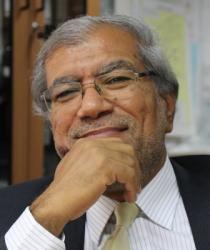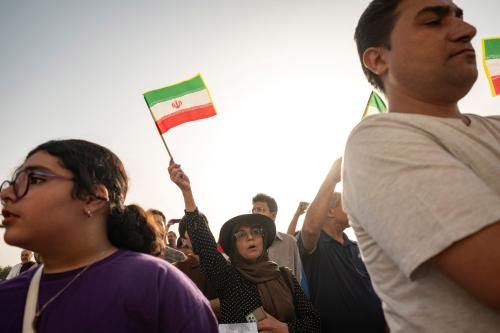The Middle East peace Roadmap—drafted in December 2002 by a diplomatic Quartet of the United States, the European Union, Russia, and the United Nations—seeks a “final and comprehensive settlement of the Israel-Palestinian conflict by 2005,” including a Palestinian state with provisional borders by late 2003. Despite this tight timeline and despite objections from other members of the Quartet, the U.S. government opted twice to postpone the Roadmap’s release, not submitting it to the parties until March 2003, after the confirmation of the Palestinian Prime Minister, Mahmud Abbas (also known as Abu Mazen), the Secretary-General of the Palestine Liberation Organization’s (PLO) Executive Committee. These delays in turn fueled Palestinian and Arab suspicions that the Roadmap was little more than an American ploy to distract the international community from the U.S. campaign against Iraq. However, in June 2003, the U.S. administration demonstrated stronger leadership and determination by pressing Israel to declare its public commitment to the Roadmap, albeit with a large list of reservations, and to organize two summit conferences in the region, at Sharm el Sheikh and Aqaba. The participation of president George Bush in the two summits signaled, for the first time, a new phase in the involvement of the Bush administration in the Palestinian-Israeli political process. Serious doubts remain, however, regarding the willingness of the Bush administration to invest capital and energy as implementation of the Roadmap stumbles, the U.S. heads into an election year, and other officials advise the president against direct involvement in the process lest he be seen as repeating the “mistakes” of the Clinton administration.
Yet the Roadmap’s problems go beyond any lack of sustained American leadership. Although both the Israeli government and the Palestinian Authority (PA) have welcomed the Quartet’s Roadmap, it is doubtful that either side will be able to meet the obligations outlined in the plan’s first two phases. Given the circumstances surrounding the resignation of Mahmud Abbas as prime minister and given widespread Palestinian dissatisfaction with the Roadmap, it is unlikely that the new Palestinian Prime Minister Ahmed Qurei will attempt to implement genuine reform measures, which would meet tremendous resistance from Chairman Arafat, who will perceive such measures as aiming at his own marginalization. Power struggles within the Palestinian hierarchy now threaten to paralyze the Palestinian decision making process long before Qurei would be able to make any serious inroads in the implementation of the Roadmap.
The Brookings Institution is committed to quality, independence, and impact.
We are supported by a diverse array of funders. In line with our values and policies, each Brookings publication represents the sole views of its author(s).



